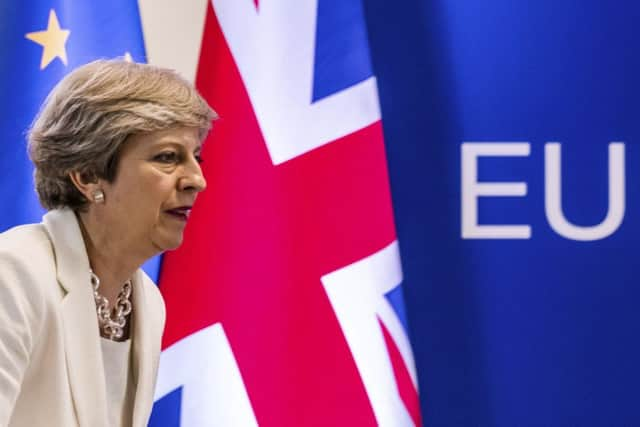Brexit timetable in doubt as experts dismiss need for new EU deal


Brexit Secretary David Davis has repeatedly expressed his determination to start trade negotiations with the bloc as soon as possible, despite Brussels’ demands to reach an agreement on payments and citizens’ rights first.
It is now being reported that a future trade relationship may not be discussed until Christmas as a result of ongoing disagreements and the forthcoming German elections. British officials have denied the claims, but opponents argue it is a sign the “bluff and bluster” of Tory Ministers is finally being “exposed”.
Advertisement
Hide AdAdvertisement
Hide Ad“This is a humiliating climbdown for David Davis... We were told the EU would be begging us for a trade deal, now even the hard Brexiteers in this government are having to admit Brussels won’t roll over just because the Germans sell us cars,” said Lib Dem Brexit spokesman Tom Brake.
“Once again the bluff and bluster of Tory eurosceptics is being exposed to the cold reality of Brexit...The UK could now be left with just ten months to negotiate a trade agreement before we crash out of the EU.
“The reality is no trade deal will be able to replace the benefits for jobs and living standards we enjoy as members of the Single Market and Customs Union.”
The row follows the publication of the latest UK position papers ahead of the next round of Brexit negotiations later this month. The document details the Government’s solution to avoiding a hard border between Northern Ireland and the Republic, and appears to indicate that ministers have abandoned any plans to introduce a visa scheme for EU citizens.
Advertisement
Hide AdAdvertisement
Hide AdOfficials claim the measures outlined in the paper will enable the UK to uphold its historic agreements with the Republic, including the Common Travel Area and the Good Friday Agreement. The document also details plans for future customs arrangements, including exemptions for small businesses and streamlined processes for other traders.
EU leaders have welcomed the clarification from Britain, but have repeated warnings that “the clock is ticking” to finalise a deal before the two year Article 50 period runs out. The Commission specified at the beginning of the formal negotiations that it wants to make “sufficient progress” on the terms of Britain’s withdrawal first – including any financial obligations –before proceeding to discussions about a new trade deal.
It was suggested this could be achieved by the autumn, but reports this week indicate that disagreements over the divorce bill and next month’s federal elections in Germany could push the timetable back to the end of the year. This has been denied by a Government spokesman who said officials were “confident” enough progress will be made by October “to advance the talks to the next phase”.
However, the Institute of Economic Affairs will today warn against overplaying the benefits of new trade arrangement, arguing that a “no deal” scenario in 2019 “does not mean disaster”. The think tank instead calls on the Government to shake off European “protectionism” and embrace unilateral free trade and lower import tariffs. “If we do not forge a deal... we could unilaterally eliminate all import tariffs, [giving] us most of the benefits of export to the EU under the umbrella of the WTO rules,” it said.